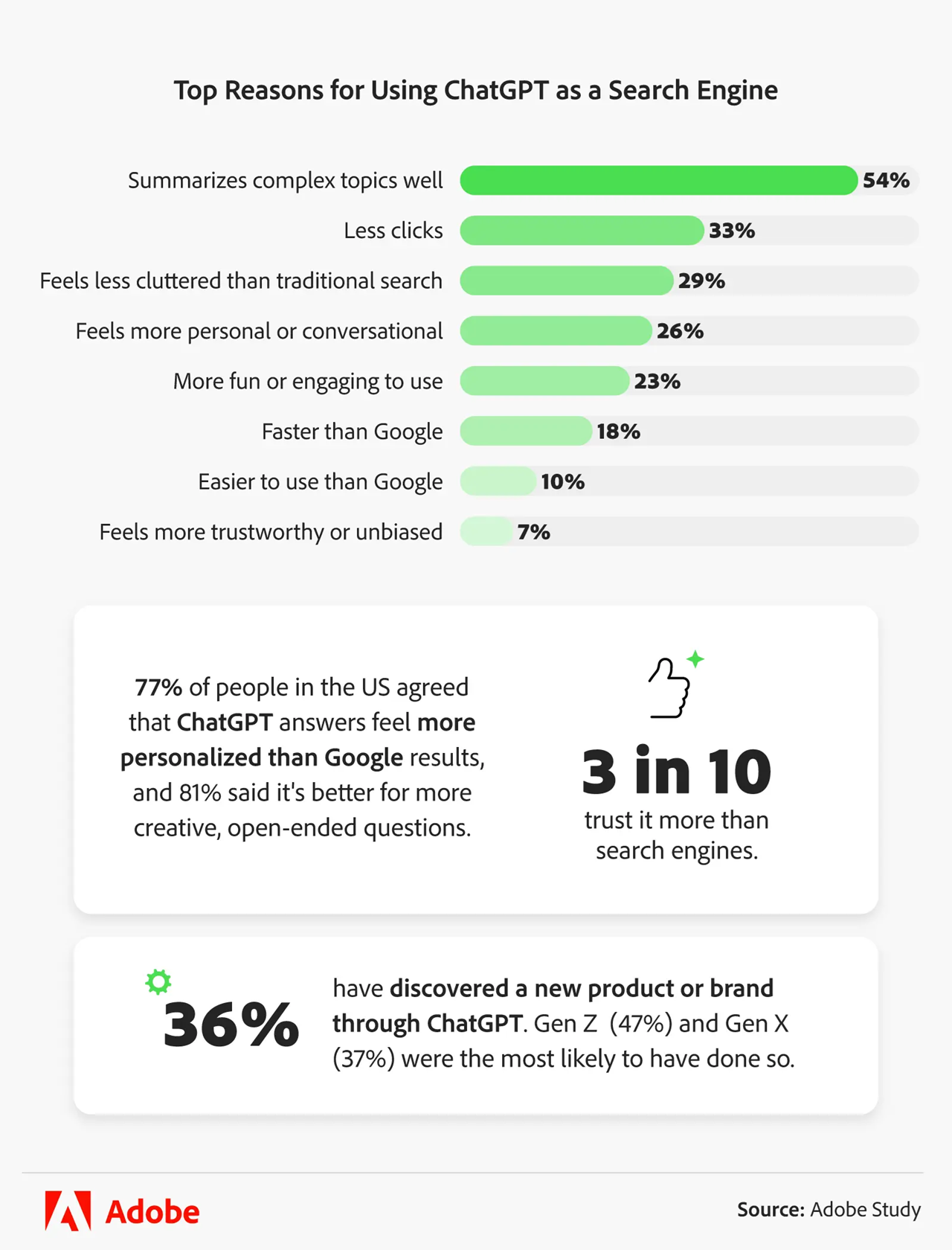Sam Altman may have had bigger plans, but most people are just using ChatGPT as a search engine
People like using AI to find things, not change their lives drastically

- 77% of ChatGPT users in the US now use it as a search engine
- Nearly a quarter choose ChatGPT over Google as their first search choice
- OpenAI CEO Sam Altman has made much of ChatGPT's power, but its ability to find information may be what really gets people to use it
OpenAI CEO Sam Altman talks about being amazed and even afraid of what the latest ChatGPT AI models can do. But what people really like about AI is how it works as a search engine, according to a new Adobe survey. It turns out 77% of U.S. ChatGPT users are less interested in a synthetic colleague or digital butler and more like a faster, friendlier Google. Nearly a quarter of those surveyed said ChatGPT is their number one pick for looking something up, with younger people even more likely to do so.
And it's not for complex, multimodal AI projects. People want to ask ChatGPT the basic questions they'd once have Googled, with 55% saying they turn to ChatGPT for general inquiries. Meanwhile, 53% say they look to the AI chatbot for creative ideas, and one in five rely on ChatGPT for financial advice. And 13% are turning to ChatGPT to look for something to buy online.
As for why they use ChatGPT for those purposes, the surveyed said it summarizes things fast, gives answers with fewer clicks, and feels personal. In fact, around 30% of those surveyed said they trust ChatGPT more than traditional search engines.

AI for regular life
This isn’t the version of ChatGPT OpenAI pitched when it launched its GPT Store or began rolling out other features. Altman and his team have been clear in their vision of a full-service AI assistant that could learn from you and even anticipate your needs. Altman talked about ChatGPT becoming your co-pilot for life. But most users are still keeping things simple. They ask a question, get an answer, and go on with their day.
It's a bit like how Amazon and Google talked about Alexa and Google Assistant as life-changing voice assistants, only for their main use to be as a way to make timers and check the weather. You could see this as a failure of imagination. But more likely, it’s a success of utility. There’s no need to dream of artificial general intelligence when what you really want is a quick way to understand the difference between chiffon lace and chiffon cake.
Not that the appeal of AI as a search engine has gone unnoticed by Google. The search giant has been busy stuffing AI into every nook and cranny of its platform. AI summaries at the top of search pages, the Gemini-powered AI Mode for search, and more. Nonetheless, Google's near monopoly on how we find things online may have cracked forever.
ChatGPT isn’t flawless, and people still double-check things. The lack of citations can be frustrating, and if you want real-time information, it’s often quicker to just type your query into a search engine. But the quiet shift in hunting information is arguably more profound than any major feature OpenAI has announced.
Sign up for breaking news, reviews, opinion, top tech deals, and more.
While the company recently showed off AI agents that can use your screen to operate apps, most users just want to know if their plant is dying because they watered it too much (yes, in my case). And while OpenAI teases how GPT‑5 will be trained on custom data, most people will just want to ask if the AI chatbot can recommend a better carry-on suitcase.
You might also like

Eric Hal Schwartz is a freelance writer for TechRadar with more than 15 years of experience covering the intersection of the world and technology. For the last five years, he served as head writer for Voicebot.ai and was on the leading edge of reporting on generative AI and large language models. He's since become an expert on the products of generative AI models, such as OpenAI’s ChatGPT, Anthropic’s Claude, Google Gemini, and every other synthetic media tool. His experience runs the gamut of media, including print, digital, broadcast, and live events. Now, he's continuing to tell the stories people want and need to hear about the rapidly evolving AI space and its impact on their lives. Eric is based in New York City.
You must confirm your public display name before commenting
Please logout and then login again, you will then be prompted to enter your display name.